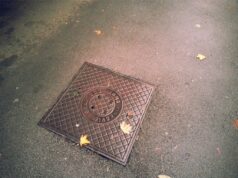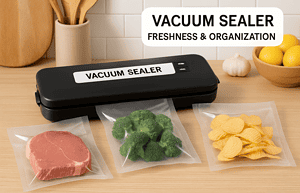
Are you looking for safer, cleaner water flowing from your faucets?
If you are like most people, you want the best water possible for your home and family. After all, clean water is better for your health, better tasting, and it makes you feel more secure too.
But there is a problem…
Not every plumbing system is going to get you the kind of quality water you are looking for.
Filtration isn’t just about the filter unit you buy. Plumbing essentials behind efficient water filtration make all the difference between crystal clear water and a system that barely works.
In this guide, you will learn the plumbing essentials that make water filtration work properly (and avoid common mistakes that waste your money and hurt water quality).
Ready to learn more? Let’s jump right in!
What you’ll discover
- Why Your Plumbing Setup Matters For Water Quality
- The Connection Between Pipes and Filtration Performance
- Essential Plumbing Components For Water Filters
- Common Plumbing Mistakes That Ruin Filtration
Why Your Plumbing Setup Matters For Water Quality
Your plumbing system is the transportation network for everything coming out of your faucets.
No matter how good a water filter you have, poor plumbing can still cause major problems. Water has to travel through pipes, valves, and connections before it even gets to your filter. If any of those parts are compromised, you will get compromised water quality.
Here is the thing most people don’t realize:
Galvanized, copper, and even modern PEX piping can all leach contaminants into your water. Corroded or damaged fittings and connections can be breeding grounds for bacteria. Low water pressure means your filter can’t perform at its best.
You know the water filtration market is exploding right now, with a market size set to reach $14.06 billion in 2024. Why? Because people know clean water is a must. But no matter if you are looking for reliable water filtration systems in Adelaide or anywhere else, you need a plumbing system that can support the filtration you need.
Did you know over 2 billion people globally drink water contaminated with fecal matter from sewage? Municipal water treatment helps, but your home plumbing is the last line of defense.
The Connection Between Pipes and Filtration Performance
Here is a secret:
Your pipes play a much bigger role in filtration performance than you might think. Pipe material, age, and condition can have a direct impact on your filter’s ability to do its job properly.
Galvanized piping is an older material that can corrode over time. Copper piping is much better, but acidic water can still leach copper into your water. PEX piping is a newer option that is more resistant to corrosion and works great with home filtration.
But here is the kicker…
New pipes are not always a fix-all. Bacteria and biofilm buildup can occur in any piping over time. Biofilm is that slimy buildup on the inside of your pipes that protects bacteria colonies. If your pipes have this, your water filter will only catch what is flowing through, not what is living on the inside of your pipes.
That is why whole-house filtration systems work best with regular plumbing maintenance. You want to make sure your pipes are clean inside and out.
Essential Plumbing Components For Water Filters
Before you jump into installing a new water filter, there are plumbing components you need in place to get it set up properly.
These are the plumbing essentials every efficient water filtration system needs:
Water Pressure Regulator
Most filters require certain water pressure to work right. Too high, and you can damage your filter. Too low, and you get poor flow rates and incomplete filtration.
A pressure regulator keeps water pressure steady throughout the system. This protects your filter and helps it work at peak performance.
Shut-Off Valves
You need shut-off valves both before and after your water filter. You don’t want to have to shut off water to the entire house when it is time to change filters or do maintenance, right?
Shut-off valves let you isolate your filter for quick and easy changes.
Bypass Valve
A bypass valve lets water flow around your filter when you need it to. During emergencies or when doing maintenance, you can keep water flowing to important areas while working on the filtration system.
Drain Line
Point-of-use and reverse osmosis systems both produce wastewater that needs to exit the system. A drain line is the proper plumbing connection for this wastewater to flow out without causing problems.
If you install a drain line improperly, it can cause flooding, mold, and system failures. Make sure the drain line is set up right from the beginning.
Expansion Tank
Systems that build pressure (like reverse osmosis) need an expansion tank. An expansion tank prevents plumbing damage by absorbing excess pressure and preventing stress on your pipes.
Common Plumbing Mistakes That Ruin Filtration
Let’s talk about what NOT to do.
These mistakes are all too common, and they can completely destroy even the best water filtration setup:
Installing Filters Without Proper Support
Heavy whole-house filters need support. Hanging one on weak or unsupported pipes leads to stress fractures and leaks. Always use heavy-duty brackets and make sure your plumbing can take the weight.
Ignoring Water Hammer
Water hammer is what happens when water flow is suddenly stopped and causes shockwaves through your plumbing. Water hammer can damage your filters and connections. Water hammer arrestors are necessary to prevent it.
Wrong Pipe Sizing
Undersized pipes create back pressure. Oversized pipes reduce water velocity. Both bad pipe sizing scenarios lower filtration efficiency. Pipe diameter should match filter specs for best results.
Skipping Pre-Filtration
Putting sediment-heavy water right to your main filter will dramatically shorten its lifespan. A sediment pre-filter catches larger particles before they reach your main filter. This simple step can triple main filter lifespan.
Poor Connection Sealing
Any leaky connections mean unfiltered water can bypass your system. Always use proper fittings, Teflon tape, and thread sealant when installing. Test connections thoroughly after installation.
Professional Installation vs DIY
This is the truth about water filter installation…
DIY installation makes sense for some water filters. Countertop and under sink models often come with all needed plumbing for basic installation. Whole-house systems and complex filtration require pro knowledge.
Research has shown that 92% of filtration buyers prefer independently certified filters, and are willing to pay 17% more for them. Buyers should apply that kind of diligence to installation, too.
Professional plumbers know how to install water filters, understand pressure requirements, know local plumbing codes, and understand how to integrate filters into existing plumbing.
DIY installation only makes sense if you:
- Have basic plumbing skills
- The filter system is marketed as DIY-friendly
- Your existing plumbing is in good condition
- You are comfortable with technical specifications
Call a pro when:
- Installing whole-house filtration systems
- Your home has old or complex plumbing
- Local codes require licensed plumbing work
- You want warranty protection for the system
Maintaining Your Plumbing For Better Filtration
Installation is just the first step.
You need to maintain your plumbing to keep water filtration working at its best. Change filters on schedule. Inspect connections for leaks periodically. Flush the system every few months to prevent sediment buildup.
Look for warning signs like loss of water pressure, strange tastes, or unusual noises. Those all indicate problems that need attention. Regular plumbing inspections are key to finding small problems before they impact water quality. A professional will spot corrosion, biofilm growth, and pressure issues you may miss.
Final Thoughts
Understanding plumbing essentials behind water filtration is the key to making it work. If your plumbing is lacking, even the most expensive water filter underperforms. Proper pipes, components, and installation create a water filtration system that will deliver clean, great-tasting water reliably for years to come.
Your plumbing and your water filter need to be a team. You need to invest in both to protect your family’s health and get the most out of your water filtration system.
Whether you are installing a new system or just want to upgrade an existing one, get your plumbing right first. Everything else will flow from that.








